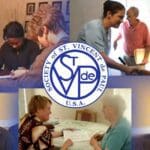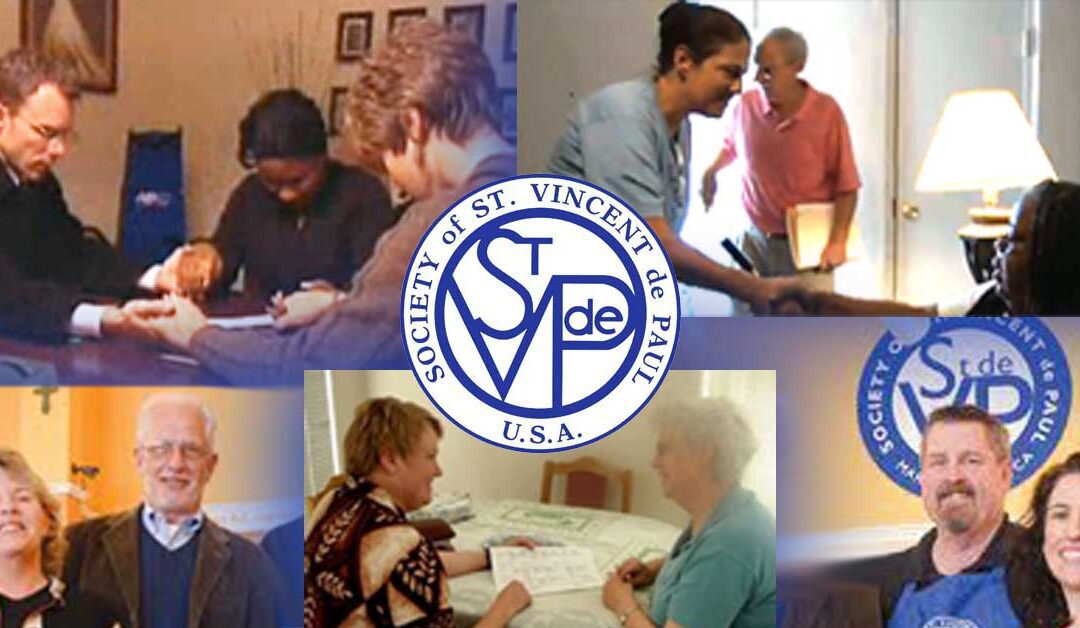 SVDPUSA Disaster Services Division Disaster Prevention Protocols for Ebola and other Contagious Diseases
SVDPUSA Disaster Services Division Disaster Prevention Protocols for Ebola and other Contagious Diseases
What should my Council and Conference (or any member or branch of the Vincentian Family) do to protect our staff and volunteers? (Information contained below is from the Centers for Disease Control and Prevention [CDC] website www.cdc.gov and from www.ready.gov)
- Prevention is the key in all infectious diseases and Councils and Conferences should distribute educational materials to staff and volunteers on the Ebola outbreak and other infectious diseases.
- Ebola, previously known as Ebola hemorrhagic fever, is a rare and deadly disease caused by infection with one of the Ebola virus strains. Ebola is not an airborne disease and a person can only become infected if they come in contact with blood or body fluids such as urine, saliva, sweat, feces, vomit from a person who is displaying active signs of the disease.
Symptoms of Ebola include:
- Fever (greater than 38.6°C or 101.5°F)
- Severe headache
- Muscle pain
- Weakness
- Diarrhea
- Vomiting
- Abdominal (stomach) pain
- Unexplained hemorrhage (bleeding or bruising)
Symptoms may appear anywhere from two to 21 days after exposure to Ebola, but the average is eight to 10 days. If you come in contact within anyone who has traveled to affected areas (such as Guinea, Liberia, and Sierra Leone) within the past three weeks and is displaying the above systems, please immediately notify your local county health department, your employer and Council/Conference.
Recovery from Ebola depends on good supportive clinical care and the patient’s immune response. People who recover from Ebola infection develop antibodies that
last for at least 10 years.
Additional Tips:
- Practice careful hygiene. For example, wash your hands with soap and water or an alcohol-based hand sanitizer and avoid contact with blood and body fluids.
- Protect your immune system by getting a flu shot and by being current on all vaccinations.
- Do not handle items that may have come in contact with an infected person’s blood or body fluids (such as clothes, bedding, needles and medical equipment).
- Do not make home visits to households that have reported infectious diseases.
- Consider how you will change your procedures for operations that involve members of the public coming to your facilities.
- Facilities that provide services for homeless people including shelters, drop in centers and soup kitchens are at increased risk of disease outbreaks.
- Practice ongoing sanitation and protection by having volunteers wear gloves and masks and by constantly sanitizing and cleaning surfaces. Encourage frequent hand washing by all residents, staff and volunteers and use hand sanitizers within the safety protocols of your facility. Develop a plan for dealing with infectious diseases in your facility and practice communicating this plan to staff, volunteers and those we serve.
- Talk to your family doctor if you are planning overseas travel to countries in West Africa that are on alert from the Centers for Disease Control and Prevention. Make and practice a family, parish, Conference and Council Disaster Response Plan and reference www.ready.gov
- Communicate your Disaster Response Plan at Conference meetings, in parish bulletins, in information you take to the families you serve, and through other social media.
- Consider your organization’s unique contribution to addressing rumors, misinformation, fear and anxiety.
- Visit the Centers for Disease Control and Prevention website at www.cdc.gov
Follow the SVDPUSA Disaster Services Division @svdpusadisaster for daily information on Ebola and other national disasters.
If you have any questions, notify your Council president and/or the SVDPUSA Disaster Services Division at ldisco@svdpdisaster.org or leave a voice message at (202) 756- 5516 and calls answered in a 24-hour time period or text urgent requests to (214) 717-1802.
Tags: Disasters, SVDP


